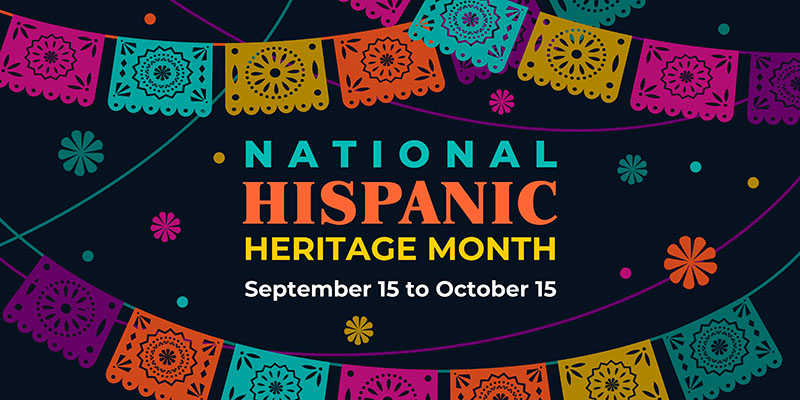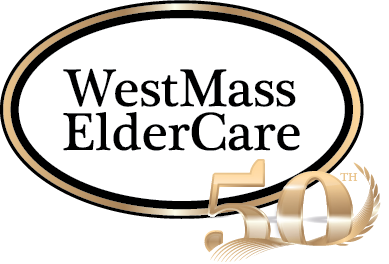 September marks the beginning of Hispanic Heritage Month, a time to celebrate the rich and cherished traditions, languages, and customs that deeply influence Hispanic America’s identity. Each year, Americans observe National Hispanic Heritage Month from September 15 to October 15, by celebrating the histories, cultures and contributions of American citizens whose ancestors came from Spain, Mexico, the Caribbean and Central and South America.
September marks the beginning of Hispanic Heritage Month, a time to celebrate the rich and cherished traditions, languages, and customs that deeply influence Hispanic America’s identity. Each year, Americans observe National Hispanic Heritage Month from September 15 to October 15, by celebrating the histories, cultures and contributions of American citizens whose ancestors came from Spain, Mexico, the Caribbean and Central and South America.
The observation started in 1968 as Hispanic Heritage Week under President Lyndon Johnson and was expanded by President Ronald Reagan in 1988 to cover a 30-day period starting on September 15 and ending on October 15. The day of September 15 is significant because it is the anniversary of independence for Latin American countries Costa Rica, El Salvador, Guatemala, Honduras and Nicaragua. In addition, Mexico and Chile celebrate their independence days on September 16 and September 18, respectively. Also, Columbus Day or Día de la Raza, which is October 12, falls within this 30-day period.
Hispanic American traditions are deeply rooted in historical narratives, religious beliefs, and customs passed down through generations. These cherished traditions are celebrated with immense passion, serving as a means to uphold a strong sense of identity and community ties.
Our own community, Holyoke, had the largest Puerto Rican population, per capita, of any city in the United States outside of Puerto Rico proper in the 2010 census. Over time, the city has become a center of Puerto Rican culture on the mainland, with at least one member of the Senate of Puerto Rico being an alumnus of Holyoke Community College, and the city being honored by both the Puerto Rican Cultural Center in Chicago, and in New York City’s National Puerto Rican Day Parade.
Customs: Family and Unity
At the heart of Hispanic American customs lies the paramount importance of family, fostering a strong sense of togetherness and support. Family gatherings, be it for holidays or daily occasions, are cherished moments for strengthening familial bonds and passing down cultural values to younger generations.
Locally, the importance of family and community is showcased in the Puerto Rican Pride Parade to be held in Springfield on September 17. This year’s theme is: “Nunca Olvides Tus Raíces,” which means “Never forget your roots.”
Languages: A Unifying Force
The Spanish language stands as the predominant linguistic thread binding the Hispanic American community. However, the influence of other languages, such as Portuguese, Nahuatl, and Quechua, is noticeable in different regions.
From the rhythmic cadence of Caribbean Spanish to the melodious accents found in Central and South American regions, each dialect holds its own unique charm. The influence of these dialects can be felt not only in daily conversations but also in popular culture, literature, and music. The incorporation of these diverse dialects has not only shaped the linguistic identity of the United States but has also fostered a sense of inclusivity and appreciation for cultural diversity.
Beyond mere communication, language serves as a bridge connecting generations and safeguarding cultural values. The presence of bilingual education programs and language advocacy initiatives has played a crucial role in recognizing and appreciating Hispanic languages within the United States. These efforts have led to a growing acknowledgment and admiration for the richness and diversity of Spanish dialects and other related languages.
Cultural Celebrations: A Reflection of Heritage
 The cultural importance of Hispanic heritage extends far beyond language. Hispanic communities have imbued the United States with a kaleidoscope of customs, traditions, and artistic expressions that resonate with individuals from all walks of life.
The cultural importance of Hispanic heritage extends far beyond language. Hispanic communities have imbued the United States with a kaleidoscope of customs, traditions, and artistic expressions that resonate with individuals from all walks of life.
From the vibrant and colorful celebrations of Cinco de Mayo, Las Posadas, and Carnevale, to the solemn observance of Dia de los Muertos, Hispanic traditions have become an integral part of American culture. These festivities serve as a reminder of the enduring resilience and rich history of Hispanic communities.
Not to be overlooked are the contributions of Hispanic artists, musicians, and writers who have greatly enriched American arts and culture. The works of renowned authors such as Gabriel Garcia Marquez and Isabel Allende, as well as the vibrant paintings of Frida Kahlo and Diego Rivera, have left a permanent mark on the nation’s creative landscape.
Traditions: Celebrating Identity and Community
Hispanic traditions go beyond celebrations and artistic expressions. Art, music, and dance play a significant role in preserving and expressing Hispanic American identity. They serve as a bridge connecting generations and preserving the values and customs of ancestors. Passing down traditions, stories, and family recipes from one generation to another is a cherished practice that deepens the sense of cultural identity and strengthens family bonds.
Traditional dances like salsa and flamenco have found their way onto American dance floors, captivating people with their infectious rhythm and graceful movements. The significance of these traditions lies not only in their entertainment value but also in preserving the customs and values that have guided Hispanic communities for centuries.
There are many dance studios in Holyoke and surrounding towns where you can learn the lively salsa and sensual bachata dances, gather for a social, or watch a production.
Cultural Importance: Flavors of Diversity
Hispanic cuisine is a testament to the cultural importance and diversity of Hispanic heritage. The flavors and techniques passed down through generations have become an integral part of American culinary traditions. From the hearty and spicy dishes of Mexico to the vibrant tropical flavors of the Caribbean, Hispanic cuisine offers a gourmet journey that tantalizes the taste buds and reflects the richness of Latin American cultures.
The traditional dishes of Hispanic cuisine are a celebration of history, family, and community. Empanadas from Argentina, ceviche from Peru, tamales from Mexico, and arroz con pollo from Puerto Rico are just a few examples of the tantalizing dishes that have become beloved favorites across the United States. These recipes carry with them the stories and traditions of the people who prepare them, preserving cultural heritage with every bite.
Hispanic cuisine has also influenced and been influenced by other culinary traditions, leading to the creation of fusion dishes that blend flavors and techniques from various cultures. In the United States, we see examples of this in Tex-Mex cuisine, which combines elements of Mexican and American cooking, and in the popularity of Nicaraguan-inspired street food or Cuban sandwiches served in modern food trucks. These fusions reflect the dynamic nature of Hispanic heritage and its ability to adapt and evolve.
For a local touch of Hispanic cuisine, ask about our Latino Elder Dining Program with Taino’s Restaurant. Taino’s serves up authentic meals daily and those in the program may enjoy a meal at a reduced cost. If you’re not able to get out to Taino’s, we also deliver Latino meals as part of our Meals on Wheels program.
Embracing Diversity and Unity
By celebrating the traditions, languages, and customs of the Hispanic American community, we enrich our understanding of the region’s multifaceted identity and strengthen the bonds that tie us together as a diverse and vibrant society. As we embrace and respect Hispanic American heritage, we honor the invaluable contributions it has made to the region’s past, present, and future.
Conclusion
Hispanic heritage has played a vital role in shaping America’s identity, and it continues to do so. From language dialects that celebrate diversity to the cultural importance of traditions and the bridge they create between generations, Hispanic communities bring an invaluable richness to our nation.
As we celebrate Hispanic Heritage Month, let us embrace and appreciate the contributions and legacy of Hispanic people. By acknowledging and understanding the various facets of Hispanic heritage, we strengthen our collective identity and foster an environment of inclusivity and appreciation for the diverse cultures that make up America.


 September marks the beginning of Hispanic Heritage Month, a time to celebrate the rich and cherished traditions, languages, and customs that deeply influence Hispanic America’s identity. Each year, Americans observe National Hispanic Heritage Month from September 15 to October 15, by celebrating the histories, cultures and contributions of American citizens whose ancestors came from Spain, Mexico, the Caribbean and Central and South America.
September marks the beginning of Hispanic Heritage Month, a time to celebrate the rich and cherished traditions, languages, and customs that deeply influence Hispanic America’s identity. Each year, Americans observe National Hispanic Heritage Month from September 15 to October 15, by celebrating the histories, cultures and contributions of American citizens whose ancestors came from Spain, Mexico, the Caribbean and Central and South America. The cultural importance of Hispanic heritage extends far beyond language. Hispanic communities have imbued the United States with a kaleidoscope of customs, traditions, and artistic expressions that resonate with individuals from all walks of life.
The cultural importance of Hispanic heritage extends far beyond language. Hispanic communities have imbued the United States with a kaleidoscope of customs, traditions, and artistic expressions that resonate with individuals from all walks of life.